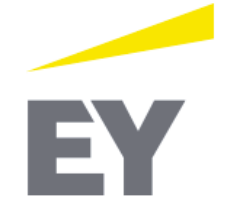EY Releases Nightfall 3 For Privately Managing Transactions On Ethereum

Accounting services firm Ernst & Young (EY) has released a new set of tools for privately managing transactions on the Ethereum blockchain.
Called Nightfall 3, the project aggregates ZKP transactions into groups, called rollups. These are known as “optimistic” rollups because the system assumes the transactions to be valid unless proven otherwise and eliminates the process of having all participants verify all transactions.
To ensure that only correctly-formed layer 2 blocks are incorporated into the final blockchain record, users are economically incentivized to challenge incorrect blocks. When a challenge is made, the smart contract arbitrates the accuracy of the challenge, rewarding correct challenges and removing the incorrect layer 2 block.
EY teams have previously contributed ZKP protocols to the public domain, named Nightfall.1 Since the initial contribution in 2019, the rapid growth of decentralized finance (DeFi) services has caused network congestion and raised transaction costs, known as gas fees, on the Ethereum blockchain. This new protocol represents a significant improvement in transaction efficiency and is expected to more than offset recent increases in gas fees.
“Based on EY experience, ZK-Optimistic roll-ups represent are currently among the most effective balance of security incentives and mathematical efficiency for running private transactions on the public Ethereum network,” said Paul Brody, EY Global Blockchain Leader. “As we have in the past, we are again contributing this code into the public domain to speed up enterprise adoption of this technology.”
Using ZK-Optimistic Rollups, Nightfall 3 can achieve a cost of approximately 8,200 gas per transaction, while also maintaining privacy. This is almost one-eighth of the cost needed to make a conventional, public ERC20 token transfer.
Nightfall 3 is also designed to reduce the learning curve required by developers to implement privacy by giving developers a standardized application programming interface (API) that appears similar to other token transfer tools.
“When developing a new ZKP protocol, developers need to be able to interact directly with low level ZKP constructs,” said Dr. Duncan Westland, Associate Director, Head of Global Blockchain Research and Development, Ernst & Young LLP. “If the user only requires private token transfers, it’s possible to have the application manage the ZKP interactions. In that case, provided the user is careful about how Layer 1 to Layer 2 transfers are made, a ZKP transaction can be considered a conventional token exchange, albeit with added privacy. Having an API that allows users to work that way can speed up development.”
Source: Read Full Article
